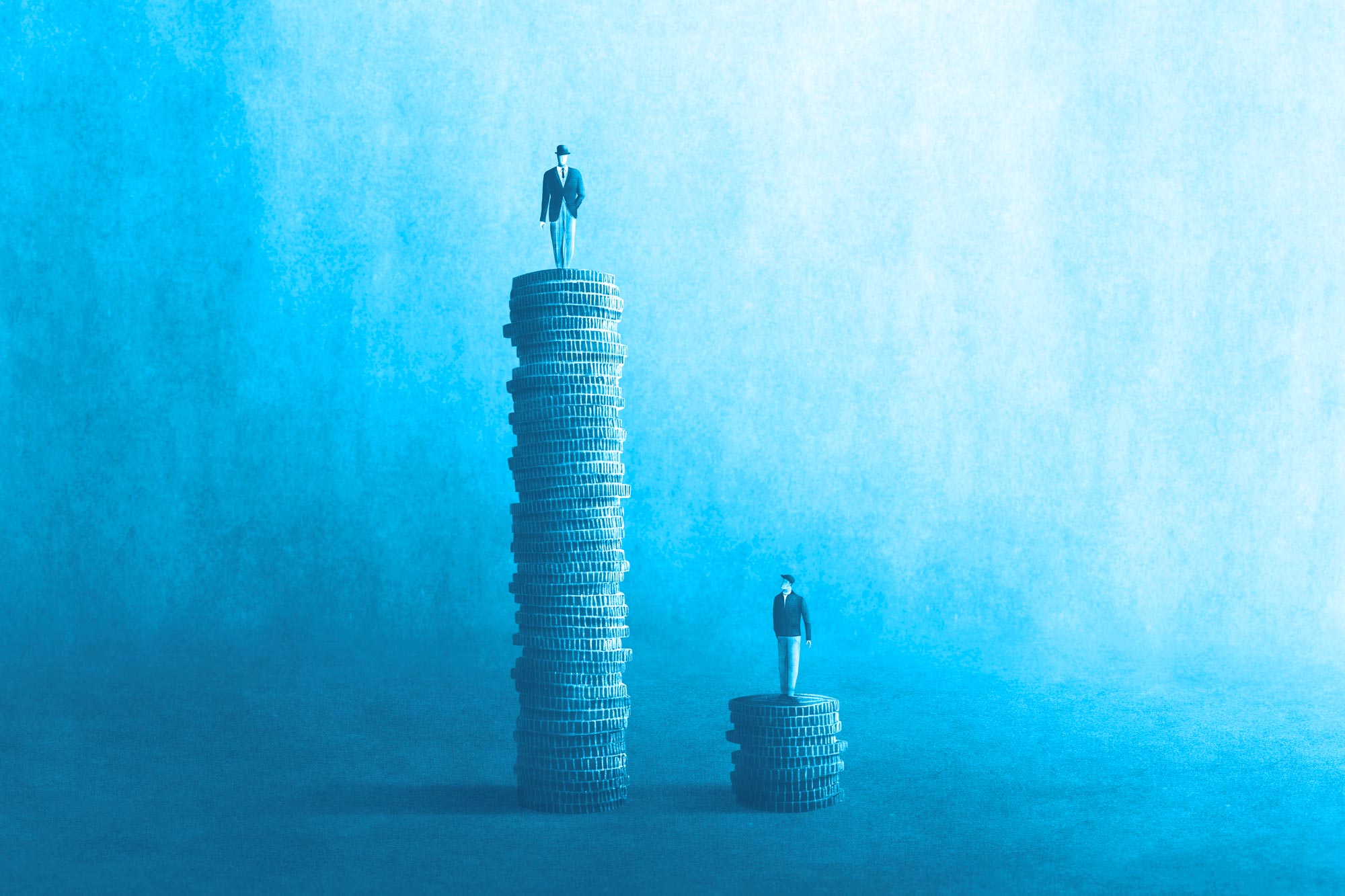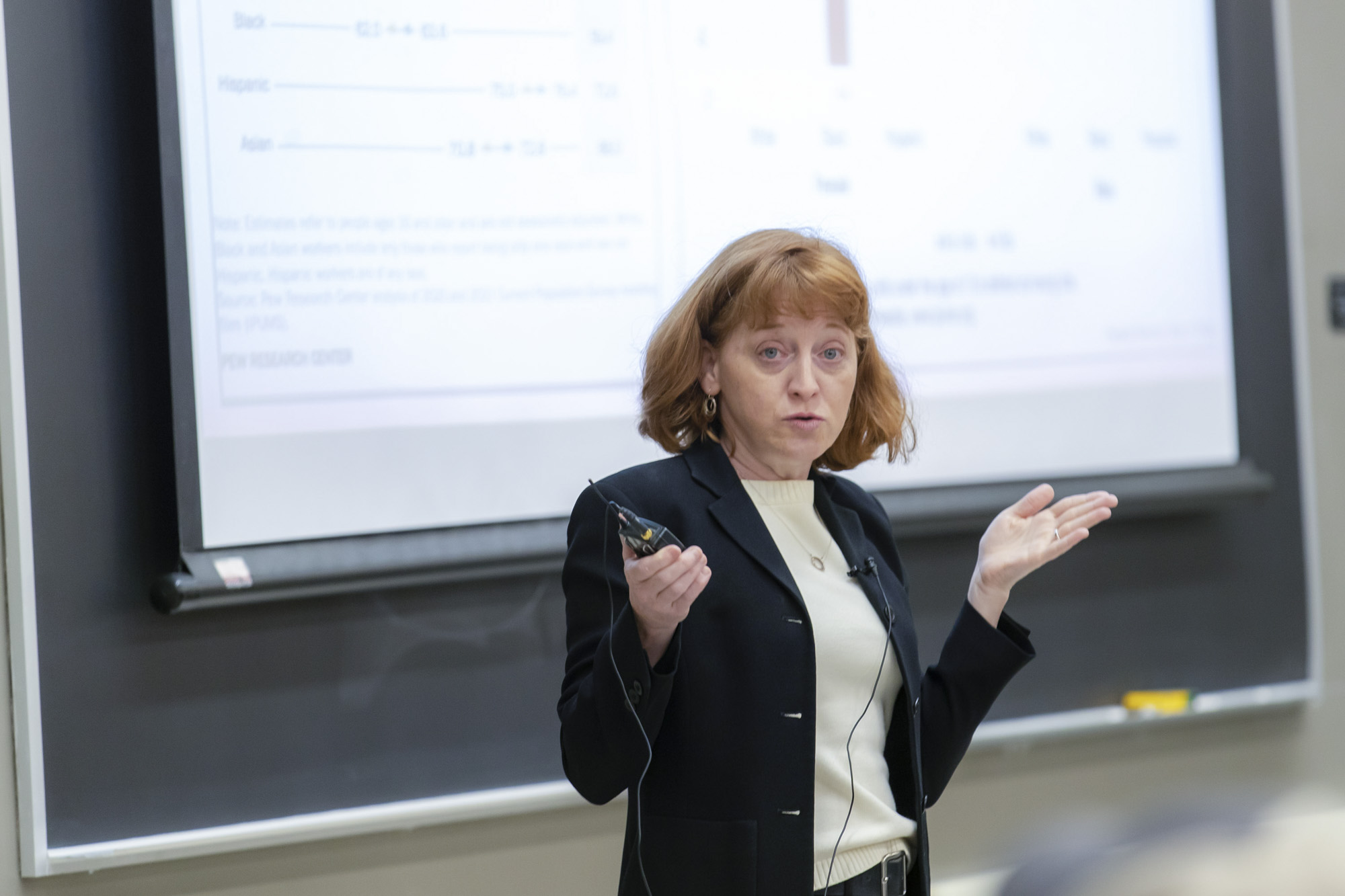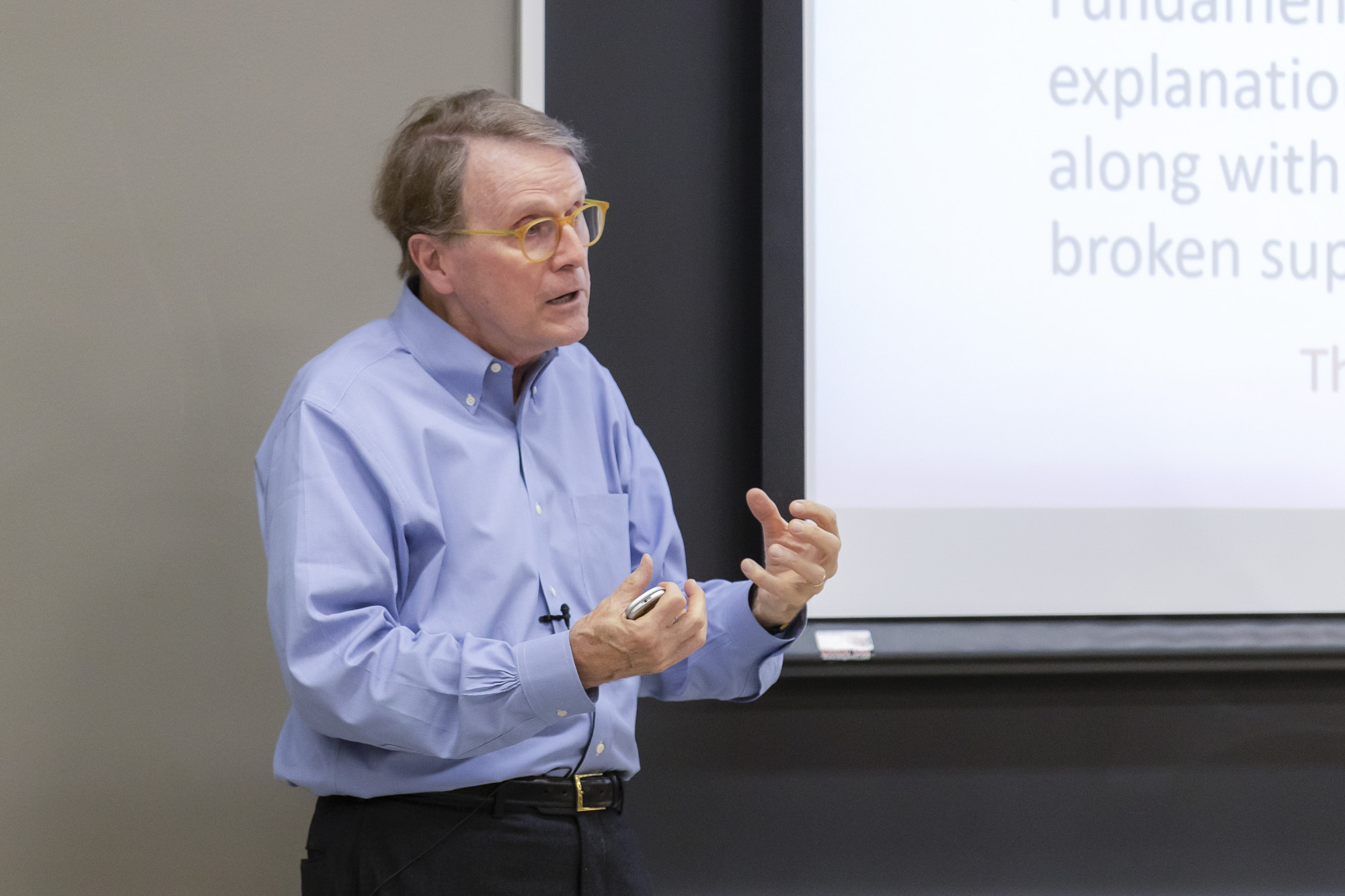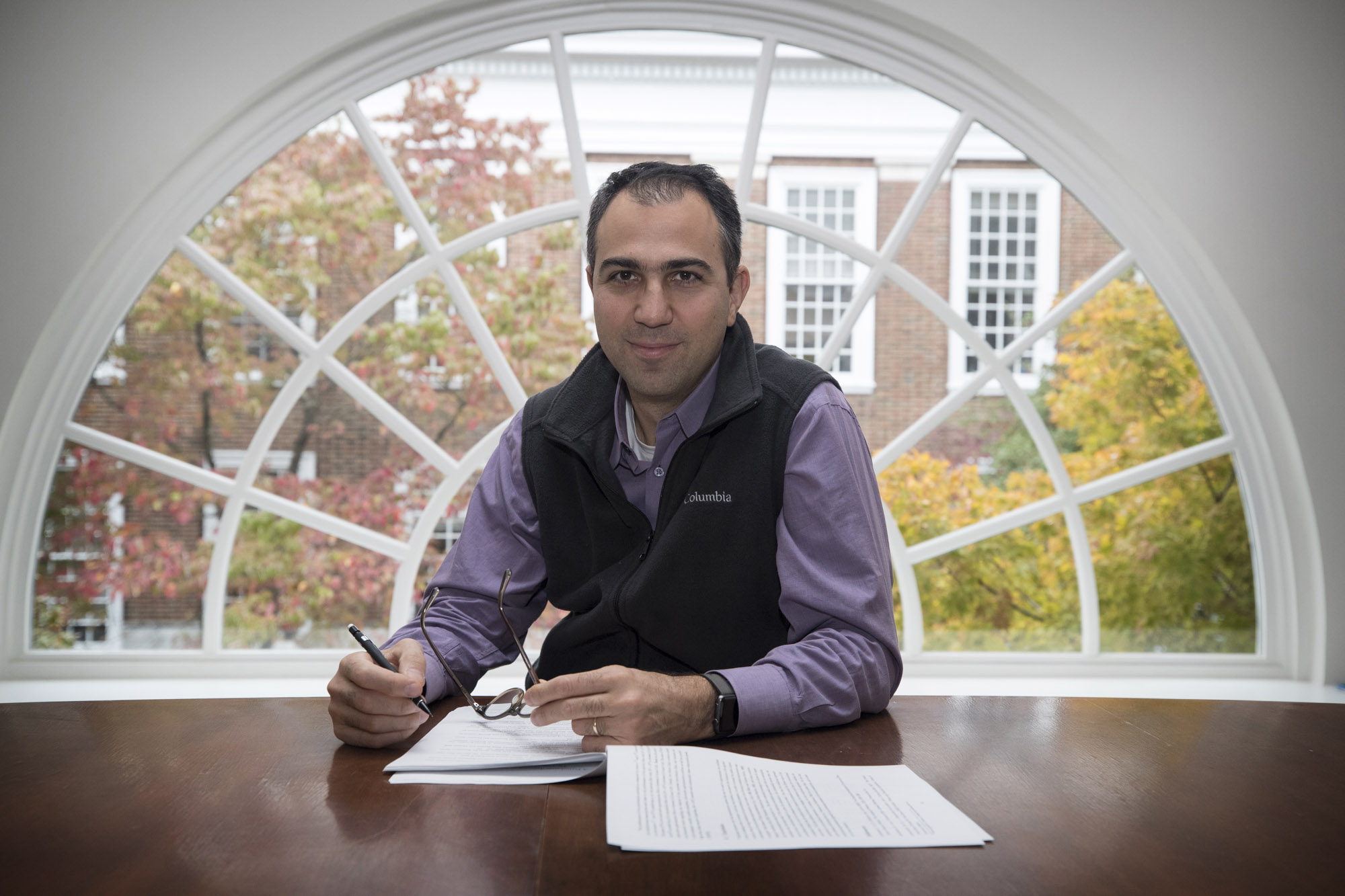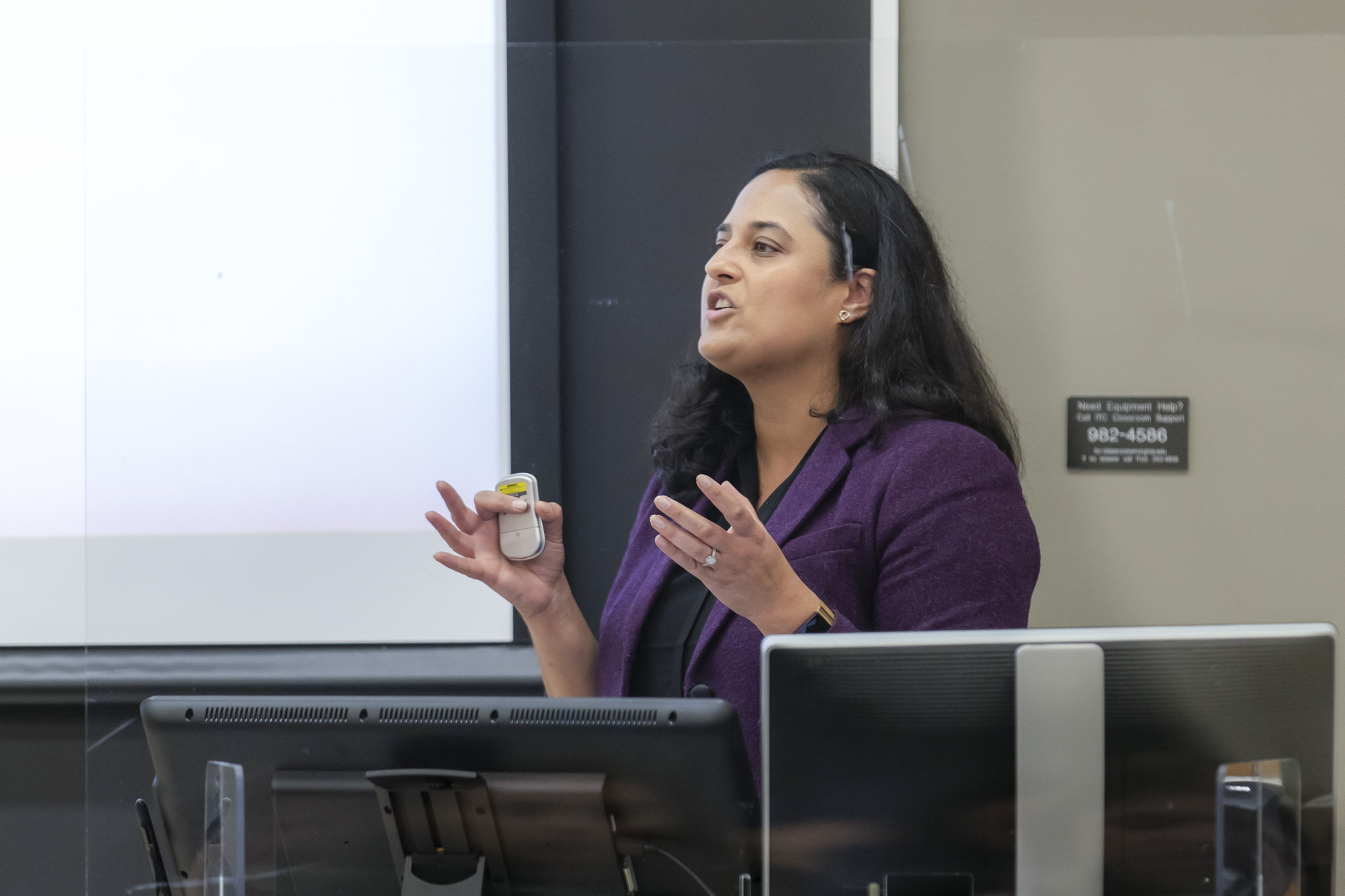So UVA Today put it to the four squarely: Are we as human beings, economically speaking, more or less equal than we used to be?
One ground rule: Saying, “It’s complicated” wasn’t allowed, although the issue undoubtably is.
As their syllabus notes, democracy can be both a safeguard against inequality and also fail to address unequal access to resources. The professors also point out that just because a country calls itself a democracy, doesn’t mean it always follows democratic principles.
To further complicate the picture, Western democracy often dovetails with the concept of a “free market” economy, in which government may regulate, but not completely control, businesses. Still, not all democracies pull their levers equally.
The professors’ selected responses to the question here just may challenge what you thought you knew about democracy.
Bair on Income Inequality: We’re Less Equal in the US, More Equal Globally
“If the question is, ‘Are we more or less equal today than we were 50 years ago?,’ then the answer depends on who ‘we’ are. Income (and especially wealth) inequality in the United States has increased. But a different picture emerges if we look at this question from a global perspective.
“If we want to understand trends in total global inequality, then we need to look at its two components: within-country inequality (the kind of inequality we know has increased in the U.S.) and between-country inequality.
“When we measure between-country inequality, we typically weight countries by population, since otherwise, for example, Belize and China are equivalent units. Within-country inequality has increased in many, but not all, countries.
“Yet aggregate global inequality has actually declined modestly over the last 15 years or so, largely because of strong growth in average incomes in China and India.
“Two caveats: It’s important to keep in mind that this is a decline in income inequality, not wealth inequality. Also, when we are talking about democracy and inequality, then what matters is not just what the trends are, but what people think is happening. People’s perceptions of inequality may matter more than actual trends, in terms of the policies and politics they support.”
Bruner on Robust Market-Based Economies: They’re Associated With Less Inequality
“The mass of respected research finds growing economic inequality in the U.S. since about 1980. This is such a widely replicated finding that it is now conventional wisdom—yet it is worthy of close scrutiny.
“For instance, many students appear to believe that economic freedom and a market-based economy cause economic inequality – i.e., more economic freedom, more inequality. But looked at across many countries, the opposite seems true: more economic freedom, lower inequality. The two are inversely correlated (-38%).
“A final surprise was the perception among students that banks, securities markets and the financial sector of the economy are significant causes of economic inequality. Surely, the huge compensation packages reported in the U.S. financial sector contribute to this perception. But across many countries, the data show the opposite result: the more financially developed is a country (measured in terms of banks, securities markets, legal institutions, etc.), the lower is economic inequality (-36% correlation).
“Last summer, the International Monetary Fund agreed with this view and concluded that ‘… improvements in financial contracts, markets, and intermediaries expand economic opportunities, reduce persistent inequality, and tighten income distribution.’
“These and other insights warrant further research, since the findings indicate association, but not causation. Also, the economic relationships explored in the course are potentially quite complex and perhaps better described in multivariate models. Finally, the relationships may change over time.
“In short, it seemed to me that the course triggered a healthy assessment of conventional wisdom. The opportunities in this course for exploration and critical evaluation are enormous.”
Cosar on Competition: Tech Helps Both ‘Superstars’ and New Players
“Two technological factors keep increasing the size of markets by integrating them across space and borders: lower costs of freight, thanks to giant container ships, and the possibility of trading previously non-tradable services, thanks to digitization. The barriers that previously shielded small- and medium-sized local firms from intense competition are getting eliminated. The outcome is a ‘superstar effect’: more productive suppliers can capture an increasingly larger share of markets. We see it not only in physical products, but also in digital media. In this sense, the world is getting more unequal.
“At the same time, however, some other new technologies lower the high set-up costs to enter the marketplace. Suppliers can come up with niche products at smaller scale. The analogy in digital media are teenagers who record a song from their bedroom and become viral in social media, such as on YouTube. In this sense, access is getting democratized, and the world is becoming more equal.”
Pandya on Voting: We’re a Bit More Equal By Income, But That’s Not Saying Much
“Turnout inequality refers to the gap in voter turnout between rich and poor citizens. In the United States, overall voter turnout has slowly increased over time, but turnout inequality persists. In the 2020 election, 65% of U.S. citizens earning $40,000 a year voted, whereas 88% of those earning more than $75,000 a year voted.
“Voting is the fundamental mechanism by which citizens hold elected officials accountable and responsive to their needs. Turnout inequality reinforces economic inequality by diminishing the voices of poor citizens in the policymaking process.”
